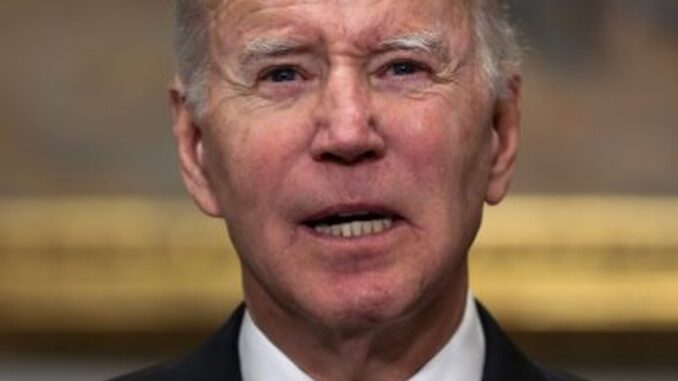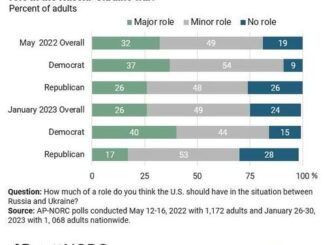
OPEC+’s surprise move to cut 1 million barrels a day of oil production is poised to raise US fuel prices just as President Joe Biden is expected to launch his re-election campaign. He has a limited range of options with which to respond.
1: Tap the Strategic Reserve
Biden may go for another release of oil from the Strategic Petroleum Reserve. The emergency stockpile was created in the 1970s after the Arab oil embargo. It’s holding about 371 million of barrels, according to Energy Department data, around half the SPR’s capacity, largely due to a historic release of 180 million barrels last year to tame surging gasoline prices in the wake of the war in Ukraine.
The administration has made refilling the SPR a priority, but it has been hampered by factors that include maintenance at two of the reserve’s four sites. Energy Secretary Jennifer Granholm has said the government isn’t able to release oil from the cache and refill it at the same time, so an emergency sale would likely further delay any plans for replenishment.
Still, there’s nothing to stop another sale, said Kevin Book, managing director of ClearView Energy Partners, a Washington consulting firm. “President Biden has taken ownership of gasoline prices in ways other president’s before him have not,” Book said. “If he continues that, it creates possibility for more interventions.”
2: Pressure US Producers
Don’t be surprised if there are more political attacks on the US energy sector, which has ignored repeated pleas from Biden over the past year to accelerate production increases, and received tongue-lashings for making record profits. For all the rhetoric, domestic oil output continues to grow slowly, with the industry reluctant to ramp up drilling and risk a repeat of previous boom-and-bust cycles.
“Since the US can’t really force the hand of the OPEC+ members, the proverbial ‘whipping person’ will be the domestic oil and gas industry,” said Timm Schneider, an analyst who runs The Schneider Capital Group LLC.
The Energy Department referred a request for comment to the White House National Security Council. “We will continue to work with all producers and consumers to ensure energy markets support economic growth and lower prices for American consumers,” a spokesman for the council said. “We’re focused on prices for American consumers, not barrels, and prices have come down significantly since last year.”
3: Back ‘NOPEC’
The White House hinted last year, in response to OPEC+’s unexpected decision to cut production by 2 million barrels a day, that it could back legislation that would allow the US to take the dramatic step of suing OPEC nations. Ultimately, the administration backed off from supporting the bill — the “No Oil Producing and Exporting Cartels Act,” or “NOPEC” — amid warnings of the effects it could have on diplomatic relations and the defense industry.
4: Export Curbs
Other levers the Biden administration has at its disposal include limiting the export of gasoline and diesel. The White House considered that option last year as a potential means to tame pump prices, which reached an all-time high in June, but it never pulled the trigger. Analysts said moving ahead with the curbs could backfire and actually lead to higher prices in some parts of the US.
5: Do Nothing
Standing pat is also very much an option, said David Goldwyn, an energy envoy under former President Barack Obama and now the president of consulting firm Goldwyn Global Strategies.
“This looks like a market-based cut from OPEC, which does not require an administration response,” Goldwyn said. “OPEC is anticipating slow demand growth. This year’s congressionally mandated sale has not hit the market and OPEC’s action is probably designed in part to counteract that.”



